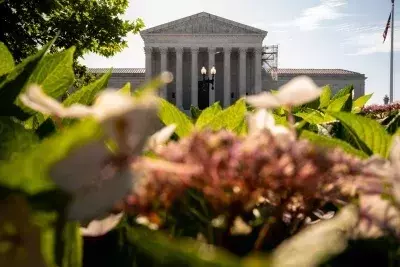
The highest judicial authority in the United States recently affirmed a lower court's judgment, effectively preventing the enforcement of a controversial aspect of Florida's immigration legislation. This specific provision aimed to impose criminal penalties, including mandatory incarceration, on individuals without documentation merely for entering the state. The Supreme Court's decision, issued as a concise, unelaborated order, did not reveal any dissenting opinions, thereby reinforcing the principle that federal statutes take precedence over state laws when conflicts arise in the domain of immigration.
This judicial intervention comes after Governor Ron DeSantis signed the contentious bill into law in February, a move that quickly garnered national attention when an American citizen, Juan Carlos Lopez-Garcia, was briefly detained under its authority for crossing into Florida from Georgia. Immigrant advocacy groups and individuals affected by the law swiftly challenged it, contending that it directly clashed with existing federal immigration frameworks. Florida, conversely, argued the necessity of its statute to counteract what it termed the 'adverse impacts of immigration' and asserted its compatibility with federal regulations. However, previous Supreme Court rulings have consistently upheld federal primacy in immigration disputes, a stance that has led to the annulment of similar state-level measures in Oklahoma, Iowa, and Idaho, and more recently, in Texas by the Fifth Circuit Court of Appeals.
While Wednesday's Supreme Court ruling curtails certain elements of the Florida law championed by Governor DeSantis, the broader subject of immigration continues to be a prominent and politically advantageous topic for him. In May, the Governor's office announced a joint operation with the U.S. Department of Homeland Security, which reportedly resulted in the apprehension of over a thousand undocumented immigrants within a week, marking what was described as a first-of-its-kind statewide initiative. This demonstrates that despite legal setbacks, the political discourse around immigration enforcement at the state level remains active.
This ruling serves as a vital affirmation of the federal government's pivotal role in immigration policy, highlighting the constitutional imperative for states to align their laws with national mandates. It underscores the judiciary's commitment to upholding established legal precedents and ensures a consistent and unified approach to immigration governance across the nation. Such decisions contribute to a more just and orderly society where the rule of law prevails, fostering an environment where human rights and legal principles are respected and maintained.
